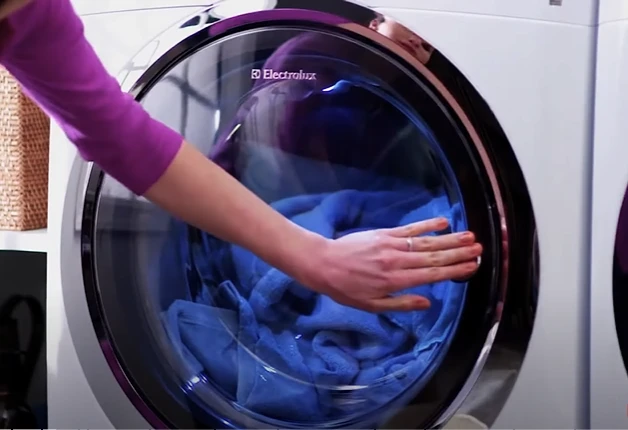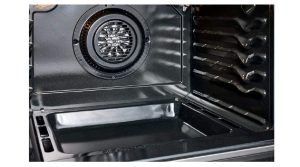Using Steam Washing Machine: Pros and Cons
Washing machines have evolved over the years, offering a range of features to cater to different needs. Steam washing machines stand out for their unique capabilities. Here’s a look at the pros and cons of these machines.
Steam washing machines are known for their efficiency. They typically consume less water and energy, making them environmentally friendly. Despite this, their cycles might be a tad longer than traditional washers. If cleanliness is a priority, especially concerning germs or residue, investing in a steam washer is a wise choice. These machines have the added advantage of reducing allergens, making them ideal for allergy sufferers.
Comparing steam washers to regular washers, there’s a noticeable difference in price and power efficiency. Steam washers tend to be pricier but are more energy-efficient. One of the standout features of steam washers is their ability to lift wrinkles from clothing, sanitize fabrics, and enhance detergent penetration.
This is due to the steam’s high temperature, which is more effective at breaking down stains than regular washing cycles. Manufacturers highlight steam’s capability to boost dirt loosening and stain removal.
On the other hand, pulsator washing machines are generally more affordable, quicker, and compact. They might not offer the deep cleaning benefits of steam but are efficient in their own right. Steam washers also have an edge in reducing the need for ironing and can refresh laundry with steam.
A mix of steam and water ensures optimal cleanliness, making clothes look and feel their best.
Steam Magic in Washing Machines
Steam technology in washing machines is not just a fancy addition; it serves a functional purpose. Steam, being a gaseous form of water, can penetrate fabrics more deeply than liquid water.
This allows for a more thorough cleaning, especially for stubborn stains and dirt. The high temperature of steam also plays a pivotal role in sanitizing clothes, killing germs, and bacteria, and reducing allergens.
This is particularly beneficial for those with allergies or sensitive skin. The combination of water and steam ensures that detergents are activated faster and work more efficiently. The end result? Clothes that are not only clean but also fresh and almost germ-free.
Washing Machine: A Worthy Investment?
In the modern age, time is of the essence. Hand-washing clothes can be time-consuming, labor-intensive, and less efficient. Enter the washing machine. It offers convenience, efficiency, and often a better cleaning performance.
Compared to traditional hand washing, a machine can handle larger loads, ensuring uniform cleaning and rinsing. The advanced features in modern machines, like steam cleaning, further elevate their worth.
While the initial investment might seem high, the long-term benefits in terms of time saved, reduced effort, and enhanced cleaning make it a valuable addition to any household.

Top 5 Uses of Washing Machines
1. Large Load Cleaning: One of the primary advantages of washing machines is their capacity to handle large loads. This means you can wash more clothes in a single cycle, saving time and energy.
2. Delicate Care: Modern washing machines come with settings specifically designed for delicate fabrics. This ensures that your fragile clothes are cleaned gently, preserving their quality and longevity.
3. Quick Wash Options: In a hurry? Most washing machines offer a quick wash option. This is perfect for lightly soiled clothes that need a rapid rinse.
4. Energy and Water Efficiency: Many contemporary washing machines are designed with eco-friendliness in mind. They use less water and energy compared to older models or traditional washing methods, making them both cost-effective and environmentally friendly.
5. Advanced Cleaning with Steam: As mentioned earlier, the steam feature in some washing machines offers a deeper clean, ensuring that clothes are not only free from dirt but also from germs and allergens. This is especially beneficial for households with kids or those who prioritize hygiene.
Steam vs. Standard Washers
The evolution of washing machines has brought forth a variety of models, each with its unique features. Among them, steam washers have gained popularity for their advanced cleaning capabilities.
Unlike standard washers, steam washers utilize steam in addition to water, offering a deeper clean. This steam penetrates fabrics more effectively, ensuring a thorough cleanse even for stubborn stains.
The high temperature of steam acts as a sanitizer, eliminating germs and allergens. On the flip side, traditional washers are often more affordable and quicker in their cycles, making them a preferred choice for many who prioritize speed and cost.
The Role of the Steam Cycle
The steam cycle in a washing machine is not just an added feature; it’s a game-changer. This cycle introduces steam during the wash, which has a higher temperature than water. This elevated temperature ensures that detergents are activated more efficiently, leading to better stain removal.
Moreover, steam has the ability to reach deeper into fabrics, ensuring that even the most stubborn dirt particles are eradicated.
Beyond cleaning, the steam cycle also offers sanitization benefits. It effectively kills bacteria and reduces allergens, making it a boon for households focused on hygiene.
Pros and Cons of Using a Washing Machine
Pros:
- Modern washing machines handle large loads, ensuring uniform cleaning and rinsing.
- Automated cycles mean you can set and forget, freeing up time for other activities.
- From delicate to heavy-duty, machines cater to all fabric types.
- Many new models are designed to consume less water and energy.
- Features like steam cleaning enhance the overall washing experience.
Cons:
- High-quality machines can be expensive.
- Regular maintenance is required to keep them running efficiently.
- They require dedicated space in your home.
- Despite efficient models, they still consume electricity.
- Advanced models come with multiple features that might take time to learn.
Common Questions About Using Washing Machines
1. Can I Wash All Fabric Types in My Machine?
Not all fabrics are suitable for machine washing. Always check the care label on clothing items. Some delicate fabrics, like silk or wool, might require hand washing or a specific machine setting to prevent damage.
2. Why Does My Washer Have a Musty Smell?
A musty smell can develop from mold or mildew growth inside the machine. This is often due to residual moisture. To prevent this, leave the door ajar after a cycle to allow the interior to dry. Monthly cleaning with a washing machine cleaner can also help.
3. How Often Should I Clean My Washing Machine?
It’s advisable to clean your washing machine once a month. Regular cleaning ensures optimal performance and extends the machine’s lifespan. It also helps in preventing unpleasant odors and mold growth.
4. Why Are My Clothes Still Soapy After a Wash?
If clothes come out soapy, it might be due to using too much detergent or the machine not rinsing properly. Ensure you’re using the recommended detergent amount and consider running an extra rinse cycle if needed.
5. Is It Safe to Use Cold Water for All Washes?
While cold water is energy-efficient and suitable for most laundry, using warm or hot water can be more effective for heavily soiled items or for sanitizing purposes. Adjust the water temperature based on the type of laundry and level of cleanliness required.





